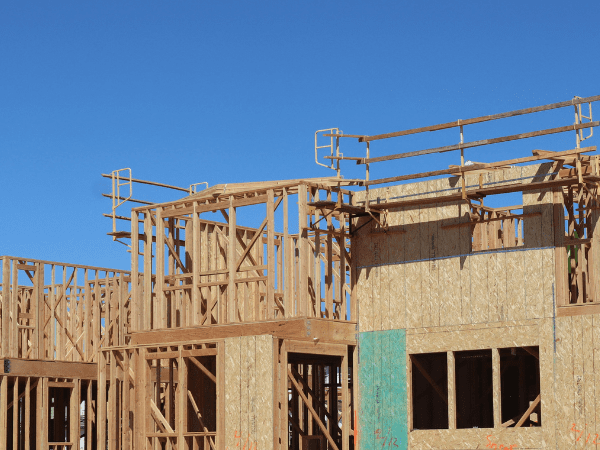Region: California
A Very Bad House Vehicle Pollution Bill
The Fuel Emissions Freedom Act may be a stunt, but it’s worth examining
It can be hard to keep track amid all the hair-raising developments in Congress and at the Supreme Court, but last week, a group of House Republicans led by Roger Williams of Texas introduced the Fuel Emissions Freedom Act, hot on the heels of the purported (illegal) termination of California’s vehicle emissions standard waiver. This freedom-to-pollute …
Continue reading “A Very Bad House Vehicle Pollution Bill”
CONTINUE READINGThoughts on SB 131
Overall a good bill, but the definition of natural and protected lands is inadequate
Governor Newsom is pushing for CEQA reform as part of approval of the state budget, and the result is two budget trailer bills, AB 130 and SB 131, that together provide some of the most significant changes to CEQA in many years. Overall, these are good bills. The changes are focused on facilitating development where …
Continue reading “Thoughts on SB 131”
CONTINUE READINGWhat Have We Learned About Rebuilding from Fire?
Woolsey Fire survivors reflect on the rebuilding process and what might help rebuild more resiliently after the January fires.
When I first met Nicole Fisher in 2019, her property in the Santa Monica Mountains was nothing but a driveway and a pile of cement. I was interviewing the art teacher for a radio story about her family’s plans to rebuild after the 2018 Woolsey Fire that destroyed her home and hundreds of others in …
Continue reading “What Have We Learned About Rebuilding from Fire?”
CONTINUE READINGThe “Big Beautiful Bill” is One Damn Dirty Deal
The Drain is a weekly roundup of environmental and climate news from Legal Planet.
My family is about to take a road trip. Out our window we will see beaches, lakes, and a whole lot of public land that would be eligible to be sold off to developers and corporations under the recent version of a budget bill that Republicans want to rush through this week. Welcome to The …
Continue reading “The “Big Beautiful Bill” is One Damn Dirty Deal”
CONTINUE READINGHere’s How the Palisades and Altadena Can Rebuild Better
In partnership with UCLA, the Blue Ribbon Commission on Climate Action and Fire-Safe Recovery has released its final recommendations.
The January 2025 Los Angeles fires were one of the most expensive climate disasters in our country’s history. They displaced tight-knit communities, took lives, shook our region to its core, and reminded us that as the climate continues to change, the risk of future disaster looms large. This recognition lead County Supervisor Lindsey Horvath to …
Continue reading “Here’s How the Palisades and Altadena Can Rebuild Better”
CONTINUE READINGA Path Forward for Vehicle Electrification?
It’s been a rough few months for vehicle electrification efforts in the United States. While Congress swaps proposals to eliminate federal electric vehicle purchase, manufacturing, and charging incentives in order to “pay for” massive tax cuts for the wealthy, President Trump last week signed a Congressional Review Act resolution that claims to eliminate California’s nation-leading …
Continue reading “A Path Forward for Vehicle Electrification?”
CONTINUE READINGCan Public Ownership Fix Our Electricity Woes? It’s Complicated
New UCLA report “Power Struggle: California’s Electric Utility Ownership Dilemma” by Sylvie Ashford, Mohit Chhabra, and Ruthie Lazenby
This post is co-authored by Sylvie Ashford and Mohit Chhabra. California’s investor-owned utilities (IOUs) are under intense scrutiny for causing deadly wildfires and charging some of the nation’s highest electricity rates. Adding to these challenges, IOUs are required to make significant clean energy and grid investments to achieve the state’s goal of a net zero …
Continue reading “Can Public Ownership Fix Our Electricity Woes? It’s Complicated”
CONTINUE READINGImmigration Raids are an Attack on Climate
The Drain is a weekly roundup of environmental and climate news from Legal Planet.
It’s hard to watch the Trump administration test drive authoritarianism in California. Since the inauguration, I’ve found solace in slowly rewatching The West Wing, a good bedtime story for anyone who feels nostalgia for partisan politics of yesteryear. Anyone else doing this? It’s uncanny how my rewatching has lined up with real world events. In …
Continue reading “Immigration Raids are an Attack on Climate”
CONTINUE READINGThe California Legislature Halftime Report
In a year defined by affordability and climate crises, several bills aimed to alleviate pressures on both fronts are advancing in the Legislature.
Thank you for joining me for the California Legislature Halftime Report, it is an exciting time of change with many updates to share. A new Senate President pro Tempore was just selected. I’m pleased to share that it is Senator Monique Limón (District 21), who I am personally pleased about this because she is my …
Continue reading “The California Legislature Halftime Report”
CONTINUE READINGWhy Do Heat Pumps Have a Bad Rap? Lies
The Drain is a weekly roundup of environmental and climate news from Legal Planet.
I just listened to dozens of people tell me that heat pumps don’t work, may cause homelessness, and can bankrupt small businesses. This was shocking news to me, in no small part because I’m currently in the process of installing a heat pump in my condo. Obviously, I don’t want to waste money, sleep on …
Continue reading “Why Do Heat Pumps Have a Bad Rap? Lies”
CONTINUE READING








